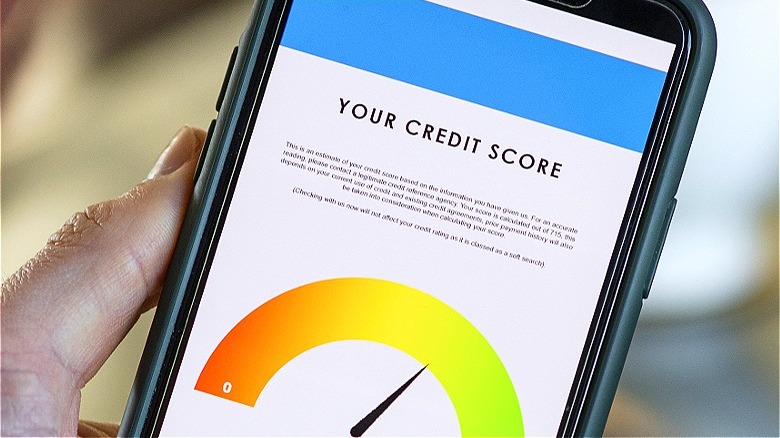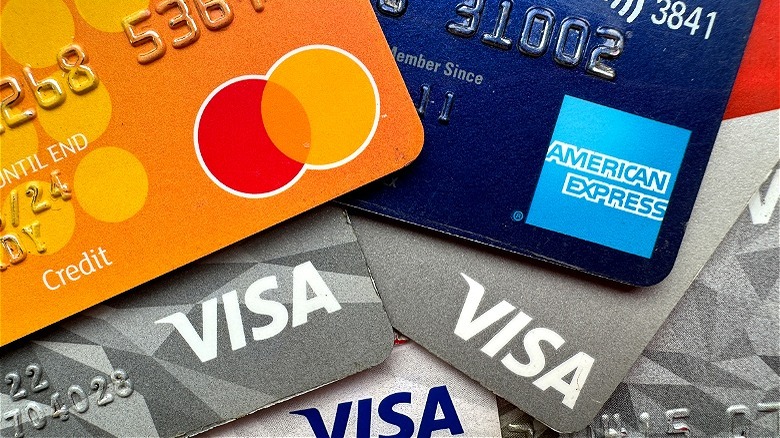How To Check Your Credit Card Approval Odds Without Hurting Your Credit Score
Beyond deciding on the potential rewards, little-known perks, and preferred companies you might want, the actual process of applying for a new credit card can be a nerve-wracking one. Knowing if you'll be approved for the new card or not can be an especially big gamble during the process. Since credit card companies run a hard check on your credit as part of the approval process (and this hard check can negatively impact your overall score), it can be dangerous to apply for a new card only to end up being denied and having to start the application process over again. This can make some wary of applying for a new card in the first place. However, did you know there are ways to check your approval chances without the risk of lowering your credit score?
First, having an understanding of your credit, and the existing factors that make you look like a desirable candidate to lenders, can help you shop for credit card types you have a better chance of getting approved for. The main three factors to consider before applying for any new credit card are your credit score, income, and monthly rent/mortgage payment amount. This said, your credit score is still weighted more heavily than the other two factors. Knowing this can help you compare your profile to credit ranges that might be listed alongside certain cards. Another option, though, is to utilize prequalified credit card offers that either you initiate with a credit card company or that a company sends to you.
What to know before applying
Regularly checking on your credit can give you information on not just your existing score but also help you track hard inquiries and lines of credit. This can be helpful for monitoring potential fraud or identity theft as well as keeping track of your payment history. Knowing your credit score can help when applying since most credit card companies will list a recommended credit range as part of their website or even within a credit card application itself. If you know your score is either too low or on the low end of this range, it could be worth investigating a different card with a lower credit score requirement. By comparing your existing credit against these recommended scores, you can help to prevent unnecessary hard credit checks from hurting your credit score (along with the headache of getting denied for a new card).
However, even with this in mind, a credit score still isn't a guarantee. It's important to realize that even with a superprime credit score (i.e., over 720), you could still end up being denied a credit card based on other factors in your credit report. For instance, if your credit utilization ratio is over the preferred 30% or if you have a late payment or a history of late payments on your report (note, late payments stay on your credit report for seven years). In 2021, per the Consumer Financial Protection Bureau, 84% of those with superprime credit scores were approved for credit cards, compared to only 19% of those with subprime scores (from 580 to 619).
Prequalified vs. preapproved offers
Likely, you've received offers in your email or mailbox for prequalified or preapproved credit cards. While you might have thrown away these flyers as junk, it could be worth investigating first if you're looking for a new card. However, it's important to understand that there's a difference between being prequalified and preapproved.
Prequalified is a less formal, and generally looser, type of screening that uses basic credit history, whereas preapproved is a more thorough vetting process. While neither option guarantees you'll be approved for the credit card, preapproval gives you significantly higher odds of getting approved should you decide to apply. Further, neither the prequalified nor the preapproved process affects your credit score in any way so they could be useful in testing the waters before deciding to formally apply for a card.
You, as a customer, can also initiate the prequalified or preapproved process through your bank or credit card. Depending on the company, this process can be a relatively simple online request, and some can even offer instant decisions. If you didn't already know this, certain credit cards have a higher/more difficult threshold for approval than others. This means that even if your credit score is too low or you're not offered preapproval on a card, chances are there's another card offered by the same company that might be easier to qualify for. Also, keep in mind that cards with lower approval thresholds also tend to have fewer perks or rewards (but higher APR) than superprime qualifying cards.


